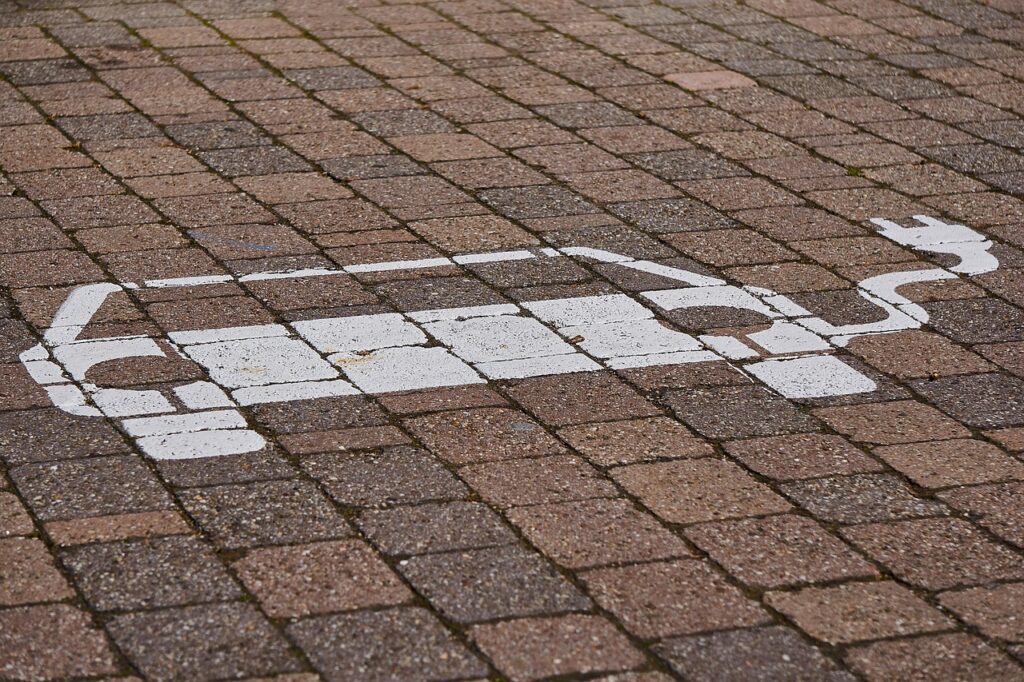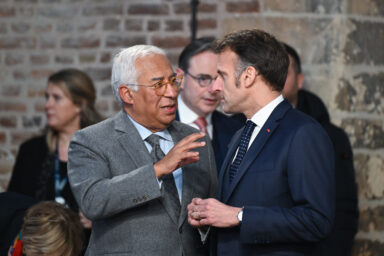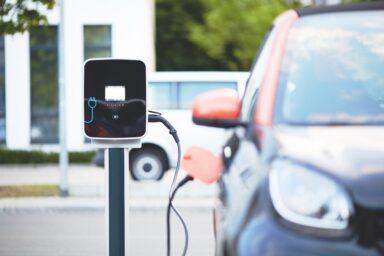As criticism mounts over the 2035 ban on the sale of new cars with combustion engines, with opponents arguing the target is unrealistic and will harm European industry, the issue once again took centre stage during a plenary session of the European Parliament. MEP Patrik Jaki (ECR/POL) sparked robust discussion where he presented a position titled Europe’s automotive future – reversing the ban on the sale of combustion cars in the EU. The lawmaker pulled no punches, but the European Commission remains firm in its position.
When it comes to cars and car manufacturers, some believe the Commission is digging itself and the automotive industry a very large hole with the 2035 target. Increasingly, it has come under attack from certain quarters as unrealistic – damaging to the sector and threatening job losses long before alternative electric cars for all are available and in place.
Mr Jaki approached the subject with a measure of hyperbole, framing the issue as about more than just the auto industry but as a question about the freedom of choice during a parliamentary debate that took place upon request of his parliamentary group.
Europe, whither goest thou?
Over the course of several minutes, he launched into a presentation calling for the reversal of the ban 2035, describing the Green Deal as nothing less than the “biggest scam in the history of the EU”. Doing away with all of this – surplus, employment, security, real production – in the name of green ideology, he said, would be a catastrophe for car production, a major pillar of the European economy.
From the outset, he made it clear he would probably never be a fan, asking: Is this really where we were supposed to go?
You might be interested
“This was supposed to be about making us greener and improving competitiveness, but look at the actual results (…) Year-on-year, our competitiveness has worsened. Exports of cars from the EU have dropped by 16 per cent, while imports of cars from China have increased five-fold”. Further, he slammed the greening measures as an apparent charade, claiming the numbers did not reflect the full or real cost of charging points, which, he said, were in reality coal-powered.
“If this is renewable energy, we must be sure that it comes from a secure supply,” he stated. As his time ran out and he was cut off by the speaker, he wondered aloud: “Who is this system really for?” – without naming supposed lobbies standing to benefit.
Leaving the floor, the speaker received scattered applause although admittedly, the room was more empty than full. The discussion clearly did not draw many from the centre, where dedication to the 2035 target, albeit perhaps with minor modifications, holds.
This was supposed to be about making us greener and improving competitiveness, but look at the actual results (…) Year-on-year, our competitiveness has worsened. – Patrik Jaki (ECR/POL), Member of European Parliament

The commissioner’s answer
The Commissioner for Climate, Net Zero, and Clean Growth Wopke Hoekstra (EPP/NLD), was also one of the main or most anticipated speakers and had equally if not even stronger praise for Europe’s automotive industry. While the preceding speaker tried to widen the rhetorical gulf as much as possible, the commissioner reminded the audience that they had to square the circles of climate, net zero, and production, all while driving competitiveness.
“The [automotive industry] is truly a fantastic sector which is for the EU the second largest producer of motor vehicles in the world. Behind China, but significantly ahead of the US. The trade surplus has risen to almost 1 billion euros, so truly phenomenal.”
At the same time, he continued, the auto industry, a sector that employs some three million Europeans, was facing “profound and fundamental change” in the form of net zero goals and digitalisation, while also having to face fierce and unfair competition from outside the EU.
“That all affects its competitiveness, which is true throughout the value chain,” the commissioner said, and required solutions.

One in five
The commissioner ran through a list of targets reached and already implemented on CO2 emissions, giving industry great flexibility in the near term while leaving longer targets unchanged.
“We do need to decarbonise the sector,” he said, but also underlined why it made good economic sense: in 2024, one in five cars sold globally was electric. Global players, he said, were speeding up investments in e-cars, another reason the 2035 target makes sense. Though he didn’t ask the question directly, it hung in the air: who wants to invest in a technology that will sound run into a dead end?
“Clean mobility, in our view, should be within reach of everyone,“ – Wopke Hoekstra, commissioner for Climate, Net Zero, and Clean Growth
Options
The commissioner outlined the importance of the upcoming results of the impact assessment, suggesting there were possibilities such as hybrids and extended-range vehicles in ways that could be beneficial, even if there too, those vehicles are not without their doubters and critics. Not all will agree on how much promise the path holds, but it is a path – not just a scrapping of an entire commitment off the table to start over. He added that an initiative on small, affordable European e-cars is being prepared, as described by Commission President von der Leyen in her State of the Union speech in September.
“Clean mobility, in our view, should be within reach of everyone,“ he said, returning the focus to the audience. But he, too, received only mild scattered claps.
Wednesday’s debate likely did little to unite those across the green policy divide, but it did underline that the Commission is moving ahead while listening to stakeholders and weighing industry input. The overall 2035 target remains unchanged, but there are signs of greater flexibility in how it might be implemented. Threading that particular needle will not be easy, especially as backlash against green policy enters more mainstream discourse, but for now, it is a course the Commission appears committed to.










